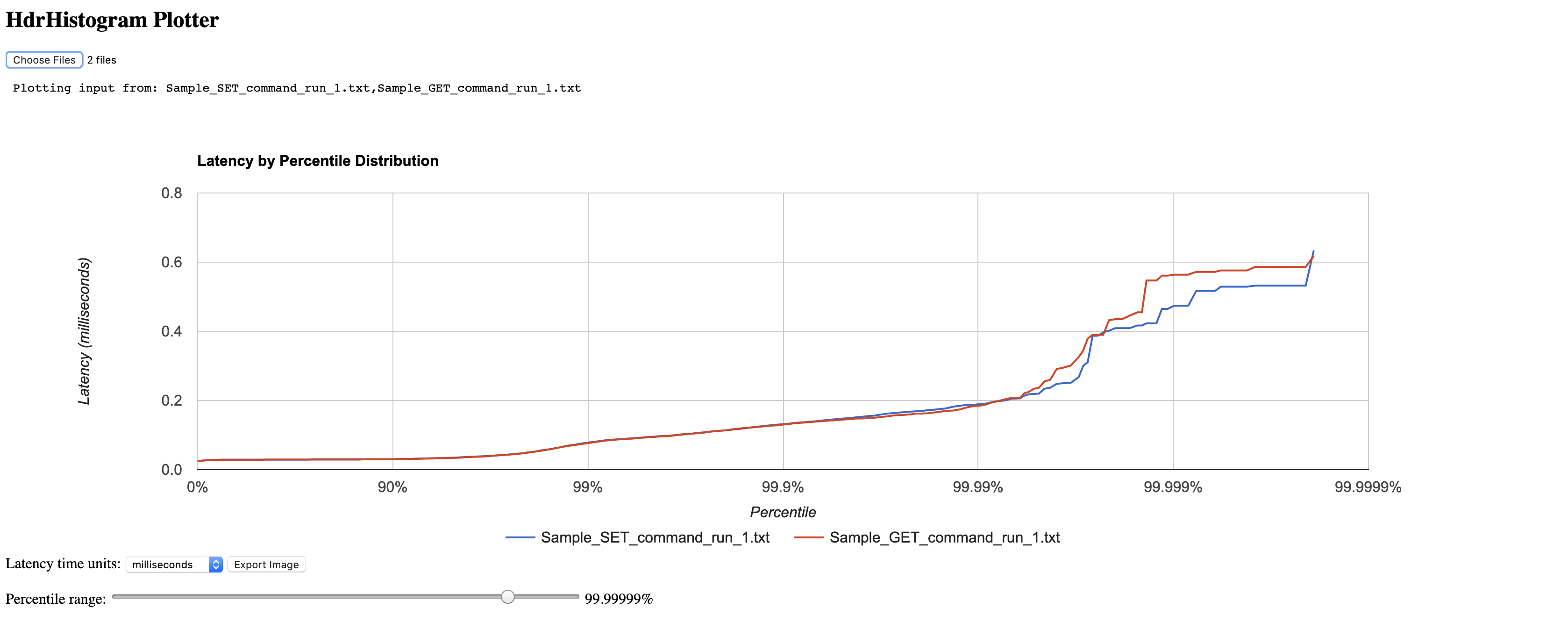RedisLabs / Memtier_benchmark
Projects that are alternatives of or similar to Memtier benchmark
memtier_benchmark
memtier_benchmark is a command line utility developed by Redis Labs (formerly Garantia Data Ltd.) for load generation and bechmarking NoSQL key-value databases. It offers the following:
- Support for both Redis and Memcache protocols (text and binary)
- Multi-threaded multi-client execution
- Multiple configuration options, including:
- Read:Write ratio
- Random and sequential key name pattern policies
- Random or ranged key expiration
- Redis cluster
- TLS support
- ...and much more
Read more at:
- A High Throughput Benchmarking Tool for Redis and Memcached
- Pseudo-Random Data, Gaussian Access Pattern and Range Manipulation
Getting Started
Prerequisites
The following libraries are required for building:
- libevent 2.0.10 or newer.
- libpcre 8.x.
- OpenSSL (unless TLS support is disabled by
./configure --disable-tls).
The following tools are required
- autoconf
- automake
- pkg-config
- GNU make
- GCC C++ compiler
CentOS 6.x
On a CentOS 6.x system, use the following to install prerequisites:
# yum install autoconf automake make gcc-c++
# yum install pcre-devel zlib-devel libmemcached-devel
CentOS 6.4 ships with older versions of libevent, which must be manually built and installed as follows:
To download, build and install libevent-2.0.21:
$ wget https://github.com/downloads/libevent/libevent/libevent-2.0.21-stable.tar.gz
$ tar xfz libevent-2.0.21-stable.tar.gz
$ pushd libevent-2.0.21-stable
$ ./configure
$ make
$ sudo make install
$ popd
The above steps will install into /usr/local so it does not confict with the distribution-bundled versions. The last step is to set up the PKG_CONFIG_PATH so configure can find the newly installed library.
$ export PKG_CONFIG_PATH=/usr/local/lib/pkgconfig:${PKG_CONFIG_PATH}
Then proceed to follow the build instructions below.
Ubuntu/Debian
On Ubuntu/Debian distributions, simply install all prerequisites as follows:
# apt-get install build-essential autoconf automake libpcre3-dev libevent-dev pkg-config zlib1g-dev libssl-dev
macOS
To build natively on macOS, use Homebrew to install the required dependencies:
$ brew install autoconf automake libtool libevent pkg-config [email protected]
When running ./configure, if it fails to find libssl it may be necessary to
tweak the PKG_CONFIG_PATH environment variable:
PKG_CONFIG_PATH=/usr/local/opt/[email protected]/lib/pkgconfig ./configure
Building and installing
After downloading the source tree, use standard autoconf/automake commands:
$ autoreconf -ivf
$ ./configure
$ make
$ make install
Using Docker
Use available images on Docker Hub:
# latest stable release
$ docker run --rm redislabs/memtier_benchmark:latest --help
# master branch edge build
$ docker run --rm redislabs/memtier_benchmark:edge --help
Or, build locally:
$ docker build -t memtier_benchmark .
$ docker run --rm memtier_benchmark --help
Using Docker Compose
$ docker-compose -f docker-compose.memcached.yml up --build
or
$ docker-compose -f docker-compose.redis.yml up --build
Using memtier_benchmark
See the included manpage or run:
$ memtier_benchmark --help
for command line options.
Cluster mode
Connections
When using the cluster-mode option, each client opens one connection for each node. So, when using a large number of threads and clients, the user must verify that he is not limited by the maximum number of file descriptors.
Using sequential key pattern
When there is an asymmetry between the Redis nodes and user set the --requests option, there may be gaps in the generated keys.
Also, the ratio and the key generator is per client (and not connection). In this case, setting the ratio to 1:1 does not guarantee 100% hits because the keys spread to different connections/nodes.
Full latency spectrum analysis
For distributions that are non-normal, such as the latency, many “basic rules” of normally distributed statistics are violated. Instead of computing just the mean, which tries to express the whole distribution in a single result, we can use a sampling of the distribution at intervals -- percentiles, which tell you how many requests actually would experience that delay.
When used for normally distributed data, the samples are usually taken at regular intervals. However, since the data does not obey to a normal distribution it would be very expensive to keep equally spaced intervals of latency records while enabling large value ranges. We can apply algorithms that can calculate a good approximation of percentiles at minimal CPU and memory cost, such as t-digest or HdrHistogram. On memtier_benchmark we’ve decided to use the HdrHistogram due to its low memory footprint, high precision, zero allocation during the benchmark and constant access time.
By default Memtier will output the 50th, 99th, and 99.9th percentiles. They are the latency thresholds at which 50%, 99%, and 99.9% of commands are faster than that particular presented value.
To output different percentiles you should use the --print-percentiles option followed by the comma separated list of values ( example: --print-percentiles 90,99,99.9,99.99 ).
Saving the full latency spectrum
To save the full latencies you should use the --hdr-file-prefix option followed by the prefix name you wish the filenames to have. Each distinct command will be saved into two different files - one in .txt (textual format) and another in .hgrm (HistogramLogProcessor format). The textual format can be hard to analyze solely, but you can use an online formatter to generate visual histograms from it. The .hgrm format will be later added as input to Redislabs mbdirector to enable visualization of time-domain results.
Sample Visual Feel of the full latency spectrum using an online formatter:

